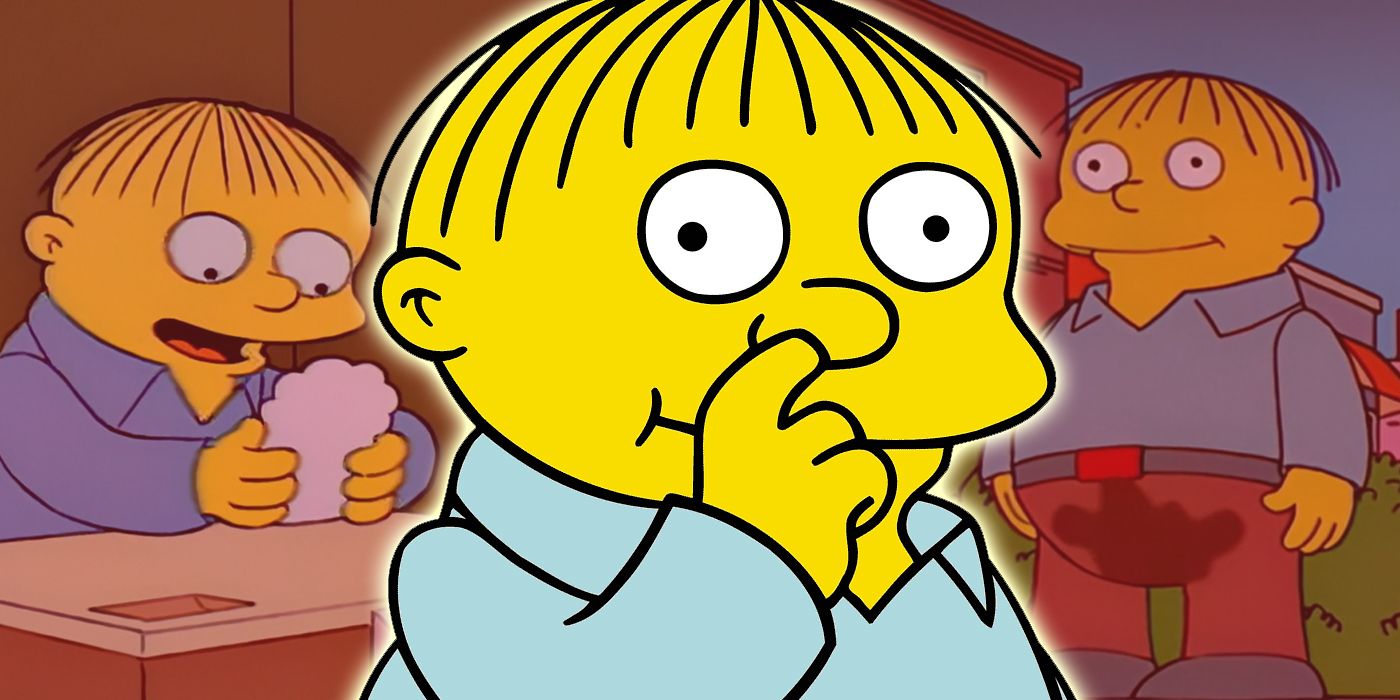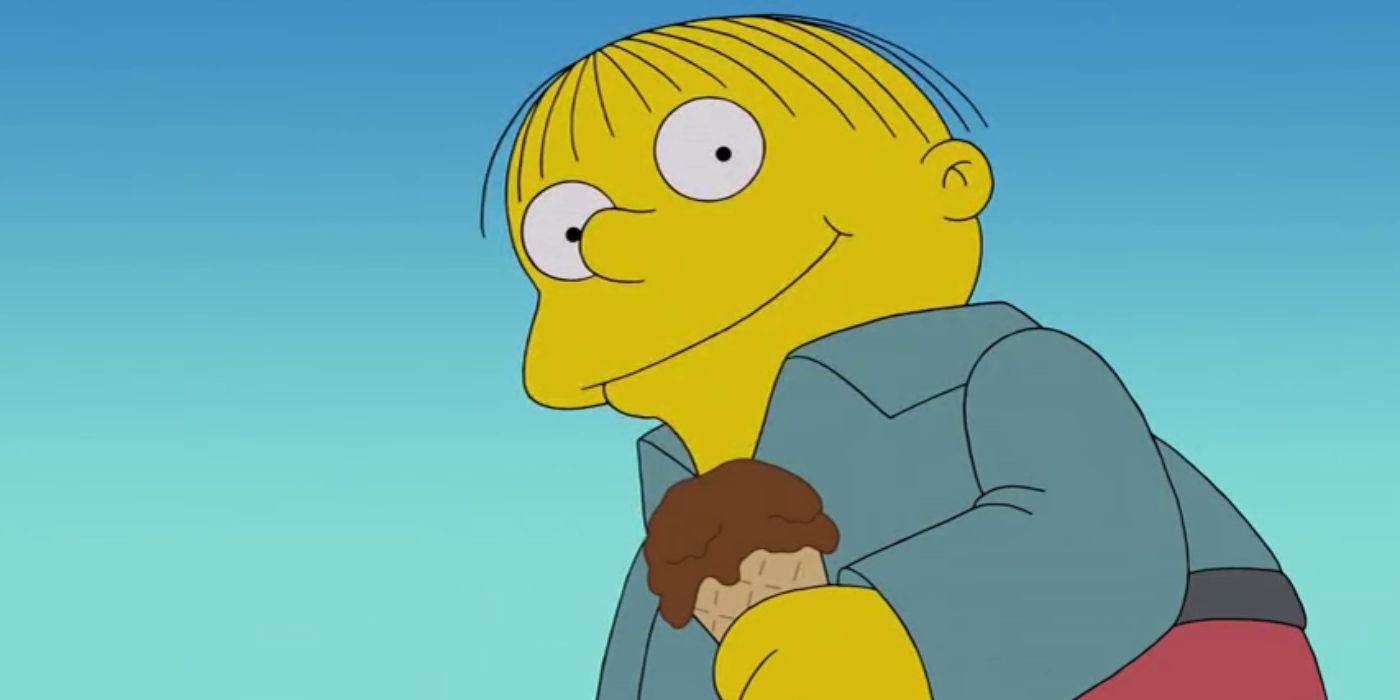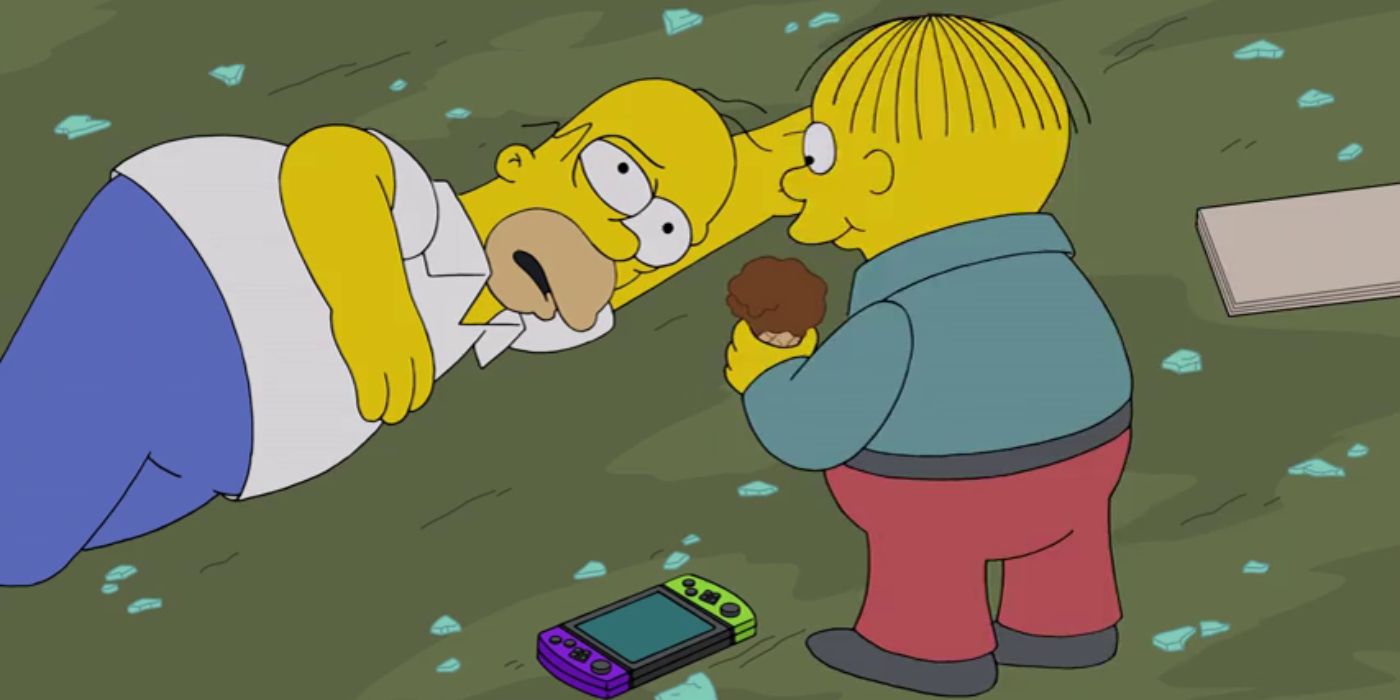The following contains spoilers for The Simpsons Season 34, Episode 22, "Homer's Adventures Through the Windshield Glass," which debuted Sunday, May 21 on Fox.
The Simpsons having a very cartoonish nature has paid off for the show in many ways over the years. It's allowed the show to become as ridiculous or as grounded as any given episode requires for its storyline, while still feeling like a consistent world. It's also allowed certain characters to breach surprising barriers, including the ones that nominally separate the real world from the animated setting.
This especially applies to Ralph Wiggum, whose appearances in later seasons adds some surprising awareness to Springfield's most dimwitted character. Season 34's "Homer's Adventures Through the Windshield Glass" sees Ralph witness the events of the episode along with the episode. He even reveals as much to Homer in a surprisingly straightforward manner at the conclusion of the episode. It surprisingly lends a supernatural edge to the character, and not for the first time.
Ralph Knows Homer Simpson's True Journey
Most of "Homer's Adventures Through the Windshield Glass" takes place within a relative matter of moments. After discovering that Marge has been keeping a secret monthly stipend of $1000 from him for a decade, Homer accidentally ends up crashing his car into a fire hydrant. The only witness to the event is Ralph Wiggum, who watches as Homer is flung from his car (alongside a Happy Elf doll played by Lizzo) and flies through the air. On some level, Ralph seems aware of the horror of the situation, commenting to a soaring by Homer that he's about to die in his perpetually cheerful tone.
However, Ralph's role in the episode takes a far darker tone in the second act. Consumed with rage by the revelation that it was his long-dead father-in-law who set up the trust out of doubt about Homer, the patriarch of the Simpsons family is seemingly killed when he's impaled on a fence post. Going to hell, Homer confronts the long-dead Clancy Bouvier and comes to an understanding with him, allowing him to return to his life. Homer isn't impaled on the post and survives the crash. However, Ralph reveals to Homer that he knows Homer went to hell, and drops his typical cheerful nature to note that "Ralph knows" before running off.
How The Simpsons Depicts Ralph's Supernatural Awareness
It's a surprisingly dark beat given Ralph's typical role in The Simpsons as a dimwitted but innocent child. Even when the show plays Ralph for dark comedy, it's usually at the expense of his bizarre outlook. There have been some quietly tragic elements to his character over the years, but this is also not the first time his peculiar nature has been given a supernatural bent. Season 9's "This Little Wiggy" made a reoccurring joke out of Ralph seeing a leprechaun that would command him to start fires. Initially portrayed as another example of his strange nature, the end of the episode implied Ralph was really being visited by some otherwise unseen spirit, commanding him to light people on fire.
Ralph has also broken the fourth wall repeatedly over the years, even looking directly into camera to suggest his thoughts to the audience. But with all this in mind, he may even be aware of the fourth wall and all that implies. Ralph having some sort of supernatural awareness might explain why he's so benign and silly, as he can be completely unconcerned with the world around him. Being aware of external elements of the universe would likely help explain his casual ignorance of pain and injuries, as well as the numerous off-screen afflictions he's had to deal with.
The darker tone of his proclamation to Homer gives the revelation a slightly sinister vibe, similar to the conclusion of "This Little Wiggly," where Ralph was given an unsettling smile while considering burning the Simpsons and their home to ashes. It gives one of The Simpsons' sweetest characters a darker edge. It quietly makes him an interesting counterpoint to South Park's Kenny, who likewise seems to be on some level aware of the strange rules of their animated universe.



